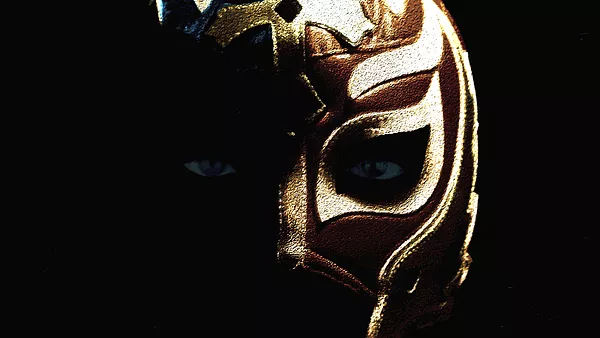A Conversation with Teddy Grennan, Christine Spang & Bennett Krishock (WICKED GAMES)

Some weekend away trips are better than others. And going away with anyone for the first time is a bit of risk. How well do you travel together? What secrets are you hiding from each other? Who snores? In Teddy Grennan’s latest thriller, Wicked Games, a weekend away becomes an elaborate set-up for a Southern Privilege ‘most dangerous game.’ Harley (Christine Spang), the kind of girl you can’t figure out in one look, joins her new boyfriend Kiel (Markus Silbiger) at his family’s seemingly vacant but palatial estate. The land is steeped in history, not the least of which is the various reasons boyfriend Kiel explains the absent family.
Of course Kiel’s reasons are complete and utter bullshit ( I want to say udder but more on that later). Actually Harley has been lead here to serve as the prize for the family’s depraved human hunt. Grennan has played in this sandbox before. His last film Ravage, (aka Swing Low), featured a photo journalist on the run from a family awful hillbilly bent on blood and rape. At the memorable part of the film, that hero hides inside the carcass of a cow. Now Grennan is back with more amoral tale of crime and punishment. Anchored by a phenomenal performance from Spang, the film eases you in with a romantic first act before putting the pedal to the metal with an insane intensity of death and near death spread across every acre of the estate. Add to that that Grennan runs a film festival (Sun Valley, in Idaho), just like I do and you can guess how much fun this interview was. Rounding out the trio is Bennett Krishoock, Editor, Producer, Actor and official cheerleader (who also hails from my hometown of Austin.
Hammer to Nail: So Christine, would you have climbed out of a cow carcass?
Teddy Grennan: She hasn’t seen the movie, Bears. She doesn’t know what you’re talking about.
HtN: She’s like, wait, what?
Christine Spang: I did hear about this though. I heard that there was a cow carcass involved. Yeah, why not? Didn’t Leonardo DiCaprio do that in The Revenant, out of a bear?
TG: You didn’t see that either. Did you?
CSS: No, I didn’t.
HtN: So you didn’t see Teddy’s last movie?
CS: I saw the trailer.
Bennett Krishock: Oh, oh, that counts.
HtN: I’m just thinking it’s a lot easier to get people to sign on, to do something this crazy violent and extreme when you have a product that you can show them that says, ‘Hey, it’s going to look a little bit like this and look how good this is.’
TG: Oh yeah. I’m not sure if that’s true…
BK: I like the last model of the car. I’ll get a new lease, alright.
TG: I’m not kidding. I don’t think half the crew saw it [Ravage] either, but I think in theory, you’re right, Bears, I think you’re right. But one of the nice things about the genre and what you’re asking her from the beginning is, it’s fun. And Christine didn’t come to set every day thinking she was going to win an Oscar, but I think she deserves one for her performance. There’s a total looseness in it there’s something about this genre it’s on fire and I don’t know whether it’s because Parasite won and opened up, blew up this genre and then on an international level. But I mean you can’t consume these films fast enough and Blumhouse is on fire and Shudder is killing it. And I mean, it’s amazing. So, I think there’s a freedom, you can kill anyone in this world, you can kill anyone. And to be fair in some of the other shit, you got to be a little bit of sensitive and that’s a good thing, you want to be thoughtful, but in this genre you can do whatever the fuck you want. And there’s a real amazing amount of freedom in that.
HtN: Christine, what made you want to come and play in this world?
CS: The big appeal for me was just Teddy and Bennett’s sheer enthusiasm in speaking with them. It’s that freedom to really, there are no extremes, there are no limits. You can go in any direction you want, which made it really an appealing role. It was really a saving grace during COVID being an out of work actor and then having this opportunity and knowing that everyone was going to be taken care of when it came to COVID control and all that. So that was also an appealing thing that they took that seriously. And then ultimately who doesn’t like a female revenge story where she’s a badass and takes down a bunch of white guys.
HtN: Yeah, that’s my favorite too.

Christine Spang in WICKED GAMES
BK: We kind of had this M.O. While setting it up in the middle of the pandemic, which that story is kind of tired. Lots of good, great filmmakers made films during the pandemic, but we were like, let’s take this period to get some of our team together who may or may not be working, get through location, give everybody ownership on the film. So tribe, meaning people who own a piece of the film. So the better the film is the better the film does, the better the tribe does. And we’re all in together. And we all piled into this house, like a big, violent, weird family who all wanted to make the picture as good as could be.
TG: Part of our pitch when we sent out the one sheet, the lookbook, et cetera was look, we’re not taking this thing too seriously. All we’re trying to do is find an anecdote to this pandemic, have a good time. We’re going to spend two weeks in Virginia and making a picture. We did assemble a lot of the old crew from Ravage, which made it easier. Because we had some keys on there who knew what they were doing, which was great. Everybody knew what they were doing.
HtN: Well I’m a big fan of Swing Low, which is always what that film will be called to me, and this film seems to be kind of living in the same sort of mindset of that. So tell me a little bit about what you wanted to do with this film and why you wanted to go back and roll around in that sort of ultra-violence, escapist sort of world.
TG: We had some fun making Swing Low, which is, as y’all know, is now Ravage and it was a bear to make that, that was really difficult. There were a lot of challenges with that. It was my first time as a director, we had some last minute issues, like every film’s its own challenge. So when Bennett and I had an opportunity last year, when our producer Burton Gray, we started getting numbers back on Ravage and it was doing well. And he’s like: Hey, what’s next?
So Bennett and I had the story, which initially was called 9 1 1 –We were initially going to do 911, which is now Wicked Games first, because it was more of a smaller picture. And then, step up to Swing Low/Ravage, but Swing Low… I’m just going to keep referring to it as Ravage, sorry. But the money kept going to Ravage and then it kept going away, actually, that was a huge challenge. It went away three different times.
So, but Gersh did a good job setting it up and our producing partner, Marsh Oglesby, and Bennett was a young buck of what were you, 23, just a young lad.
BK: Yeah, that sounds about right.
TG: And he was fresh out of college and he was doing everything on the set. And we had this cut that came to us, which I had done with another, getting close to 50 guy. And it just kind of felt like NPR when it was done. And Bennett like, dude, you need to K rock this shit. So we K rocked it and made it a totally different ending with a different story. And he was right. And so actually Bennett ended up editing, he’s an editor on the picture and we had a lot of fun with it. And then when we came down to Texas and screened it there and then it started doing well, we thought, let’s do another one. So we reverse it, like I said, we went out with 911, and we did it as a tribe shoot, which Bennett set up.
HtN: Teddy, one thing I want to get back to because you mentioned that in this genre you can do anything you want, which is true. But having being someone who goes to Fantastic Fest every year and sitting in the audience and seeing how the crowd reacts to certain things and how that’s changed over the last four or five years. I think even though that you can do anything, your movie is very respectful in that it doesn’t do anything that It doesn’t need to do. It’s not one of these – it’s a revenge film, but it’s not a gratuitous rape revenge film. We don’t have to have a long scene where we see why Harley is the way she is. We don’t have to, it’s not living in the exploitation game. It’s just living in the fun side of those kind of films.

A still from WICKED GAMES
TG: I got stung a little bit with Ravage where I think that we insinuate the rape with a revenge there and I wish I hadn’t done that. When we were going to suggest it on that picture, or it it’s more insinuated. And what we wanted to do in the end and was down in the crypt where Christine’s in the basement with the brothers, it goes on and on, but he talks about her past, which, I think the discussion of it, what happened to her can be more awful than what you see. Letting you think about what happened and then Christine’s reaction, there’s that awful line when he tells her that…
HtN: It’s four not three.
TG: Yes, yes.
HtN: Yeah. It’s obviously my favorite line in the movie, so yeah. [sorry you’ll have to see it to understand what we are talking about]
TG: It’s awful. And then Bennett’s got him laughing, in the cut back to Schonefeld leaning against wall, laughing about it. And to me that’s the wickedness of it all, you don’t have to show that shit. You can see, you get the right actor and then you get Christine’s response and the rest of it. And I think there’s a lot of different ways to build it up. And I also think the rape revenge thing, that’s done. I don’t think that you can find a sympathetic audience on that any longer.
HtN: Yeah, I think fortunately we’re losing that. I mean, the last one I remember that actually worked was the movie Revenge – Coralie Fargeat’s movie – which I thought was brilliant. But that was very earned. I would say.
TG: Yes, yes.
HtN: And it helps that it was a female director too. I mean, I think that you can’t dispute that.
TG: Yes, and The amount of blood in that movie. Oh my God. It was actually a beautiful film. Those ants when she’s impaled. Wow. That was incredible.
[seriously, see Revenge if you haven’t.]
HtN: Christine, let’s talk about Harley. One thing that I really buy is the relationship that she has with Kiel. I mean, it’s a new relationship, but I really get that she’s into him and that it seems like he’s into her and she wants something fun and nice and I really buy the distress she has when she finds his dead body. So, I think she may be hardened, but she’s human and she allows herself to show those emotions.
CS: And I think to Harley, there’s a vulnerability to her, but we see so much that female characters are described as hardened, but soft like da, da, da, but what if she’s just hardened? What if she’s just hardened and strong and has been through some crazy shit and that’s it and that’s her life and she’s accepted it and moved forward. And now… she’s human again. And I just prefer calling her human. She’s just human. She has feelings, but I think I never wanted to play her victimhood. I just always wanted her to be on the other side of the trauma in a way.
HtN: Yeah. Let’s talk about the way the film opens because you open with the end, which we actually never get to, which I find to be an interesting choice. You kind of set it up in a scene that would be like a post credit scene almost.
TG: So we fucked up.
HtN: No. What?
TG: There is this part when Christine leaves the house, where we had this issue at the end of the film that just wasn’t making sense for the finale. And I came to Christine, Christine, when did I come to you? The day before?
CS: Literally, that was like a whole new ending. I was like, what are we doing? Okay.
TG: This is what I loved working with Christine. She was like, okay, I got it. But the ending where we fucked up was when she’s leaving the house, she doesn’t take the F150 outside I’m like, oh my God, we had her go down to get the motorcycle. Because I was in the story. But then when we’re wrapping. I’m like, oh my God, she didn’t get the truck. What the fuck? So that’s why we have Rhodes (Michael Shenefelt) go into the truck and look for the keys. That’s how seriously we took it. He goes in, we can’t find him in the very beginning and he comes in and then he takes the motorcycle into town after she couldn’t get it started.
So there was that. We also wanted to start with the beginning at the end, where you go full circle and, Bears Rebecca, I don’t know if you remember, but at the very end, the door opens up and we do a close up of that, of the crypt door opening where we open with that sound of it. But you can’t see it open. We go audio full circle, but we don’t go visual full circle.
HtN: Yeah. Yeah. Cool. Bennett what was it like to edit this film?
BK: It was actually a lot of fun. Sometimes when you shoot a film as fast as we did, you get into the editing bay and there’s quite a bit of fixing and not as much just cutting together your story. But everyone was really on the same page. And I remember I said this to Teddy, ‘I’m having a ball. We don’t have to fix too much. We get to cut this story together with our style, with our pace, the way we want to do it.’
And I think we holed up for two or three months and it was the only thing we focused on. We had a ball and we were able to, yeah, no, it was kind of draining looking back on it. Of course there were times when, I was hungry and grumpy, but we got through that. But it was good and it allowed us to discover the leaks in the story and fix them and then make the film better. The new opening, the book ends. So it went great and that was because of our team and because Teddy and I, on Ravage, we really learned each other’s language and how to work with each other.
Wicked Games premiered at Screamfest in October and continues it festival run into 2022.
– Bears Rebecca Fonté (@BearsFonte)
Wicked Games movie review; Teddy Grennan, Christine Spang, Bennett Krishoock interview











